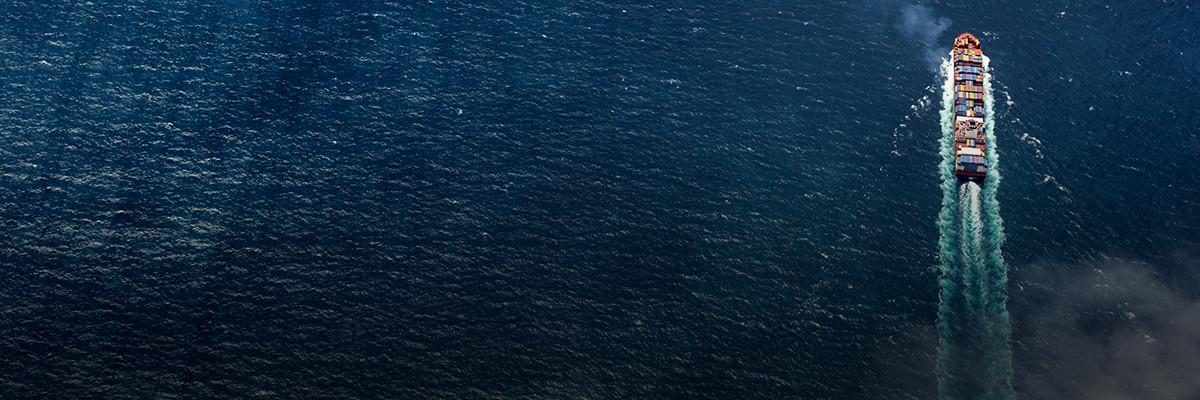
Authors
-
Cecilia Müller Torbrand
Former Director, BSR
The Maritime Anti-Corruption Network (MACN)—a global business network working toward the vision of a maritime industry free of corruption—was founded in 2011 by a small group of companies. It was created with the recognition that for many years, the shipping industry has faced a difficult issue: When a ship travels in and out of ports, there is an opportunity to ask for illegal payments.
For example, one captain told us recently:
“The customs officer threatened to delay the ship and fine us US$60,000 for an error on the luboil [lubrication oil] declaration. Then he asked us for US$7,000 to help us have no problem.”
These corrupt demands are bad for shipping companies, as they can lead to delays or other commercial consequences for those who stood their ground. They are bad for the ports and governments, who acquire a reputation for corruption and have friction in the trading environment. Above all, they are bad for the ships’ captains and crews, who come under pressure to reject demands yet face threats, intimidation, and sometimes violence when they try to do so.
MACN started small, but it’s not small today: In 2018, MACN was delighted to welcome its 100th member. Members come from across the shipping value chain and include the largest vessel owners and operators, as well as associate members like companies that provide agents for ships entering ports. Collectively, MACN members represent over 25 percent of total global tonnage.
A bigger membership means a stronger collective voice when speaking with governments, ports, and customs: With over 100 members, we have real power to bring to the table and push for change. It means more resources to deliver tools and resources to members. And ultimately, it means greater impact and a better operating environment for those on the front line—the captains and crews.
A bigger membership means a stronger collective voice when speaking with governments, ports, and customs: With over 100 members, we have real power to bring to the table and push for change.
Here are some of the things we have been proud to accomplish in 2018 and three reasons why we would love for you to join us.
Collective Action
MACN’s collective action in Argentina has resulted in the successful adoption of a new regulatory framework for dry bulk shipping. This year, according to MACN data submitted through our anonymous incident reporting mechanism, corruption incidents in Argentina have decreased by more than 90 percent. This has been driven in part by high-level support for the new regulatory framework from the customs authorities and also from high-level politicians, including the Argentine President.
Elsewhere, we have completed our collective action project in Nigeria, which was supported by (among others) the Danish Maritime Foundation, the Orient Fond, and Lauritzen Fonden. The project included training over 1,000 government officials and developing a training course on ethics for government officials. We are proud to work with local partner Soji Apampa, founder of The Convention on Business Integrity Ltd.
MACN is also preparing to launch a collective action in India, with a port integrity campaign through which vessels will prominently display signs and posters co-signed by the government about the “Say No” policy and opposition to corruption.
Culture of Integrity
In addition to collaborating with members and stakeholders to find solutions in corruption hot-spots, MACN seeks to influence the wider culture to ensure lasting change. In 2018, MACN was delighted to present its work to the Facilitation Committee (FAL) of the International Maritime Organization (IMO). This was a major step in engaging the broader maritime community, and MACN is following up through a cross-industry working group.
MACN also spoke at several major conferences this year, including Transparency International’s International Anti-Corruption Conference in Copenhagen.
Finally, MACN was invited to provide testimony at the U.K. House of Lords on the U.K. Bribery Act’s effect on the maritime industry. You can watch a recording of the session here.
Our Impact
We’re delighted to see that the word is spreading, and our impact is growing. Around the world, corrupt demands in hot-spots are decreasing, and where demands are still being made, our members are better prepared, with stronger policies, more resources, and the best practices of their peers.
But don’t just take our word for it. We asked some of our members why they joined MACN, what its value was, and how it can enable fair trade to the benefit of society and all stakeholders. Watch the video below to hear from them, and if you would like to get involved, contact us.
BSR’s latest sustainability insights and events straight to your inbox.
Let’s talk about how BSR can help you to transform your business and achieve your sustainability goals.